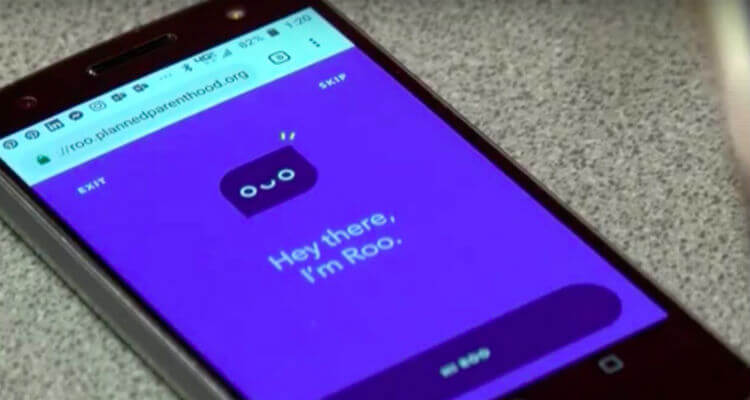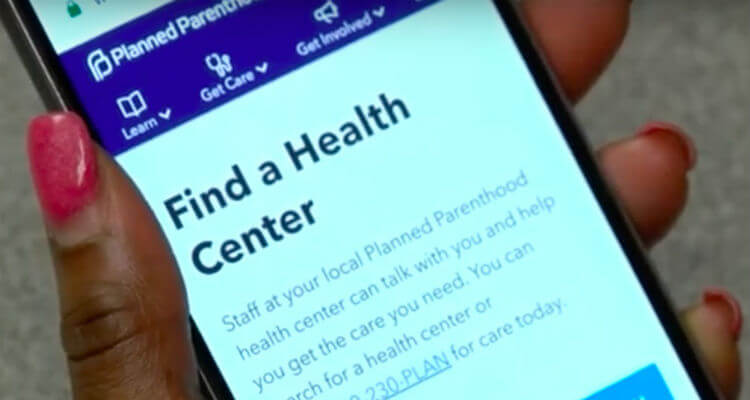Planned Parenthood Is Battling Sexual Ignorance with a Chatbot
Roo is designed to answer teenagers’ questions and even learn, itself, along the way.

In her 2016 study Changes in Adolescents’ Receipt of Sex Education, 2006–2013, Dr. Laura Lindberg writes of a significant and ongoing decline in the availability of quality sex education for young adults.
Talking to The Guttmacher Institute about her study, she lays out her findings:
Relying on parents alone to provide teens with necessary information about sex is inadequate. Schools should provide medically accurate and comprehensive sex education, so teens have the information and skills they need to enjoy the best health possible.
The problem is, sex education in the United States—principally quality sex education that covers subjects like birth control, HIV prevention, consent, and gender and sexual orientation issues—is spotty at best, with some states even continuing to teach abstinence despite the long-debunked effectiveness of abstinence education.
So if parents can’t provide the necessary basics and public education is either not there or way out of date, where can young adults go to receive essential, and most of all non-judgemental, information about human sexuality?
The answer could very well be to a state-of-the-art chatbot from one of the most respected sources of information on the subject: Planned Parenthood.
Answer my questions, Roo
Planned Parenthood’s Roo chatbot was created by Work & Co, but unlike others of its kind, this system was designed and built from the get-go to understand as well as answer questions specifically from young adults.
Before it was even created, for instance, Planned Parenthood laid the groundwork for Roo by talking with students at MESA (Math Engineering Science Academy) High School in Bushwick, New York about what they’d actually want from an online sex education interactive resource.
According to Planned Parenthood’s senior director of the Digital Product Lab, Ambreen Molitor, confidentiality was a big part of the students being comfortable with the experience.
More than that, this reported lack of feeling safe to ask anything they wanted reveals why public school, and even sex ed from parents, has been so ineffective for teens.
Ask Roo anything you want

Interviewed by Vox, Molitor said that even online resources don’t always feel secure, noting that “Gen Z’s teens in general are very aware that when you’re searching on Google, you’re being cookie’d. They’re very cognizant of what they type into the browser or the search query—which is really unique.”
But this isn’t the only thing Molitor learned. In addition to needing to be secure, she also found out that their platform had to be mobile, reflecting how many teens prefer to use their phones rather than computers at home or at their schools.
She also discovered that being direct, and in particular asking straight-up questions about sex, is not something many young people feel at ease doing. So, they built into Roo the ability to be casual: the system can recognize an indirect question and respond in as human-like a manner as possible.
“We wanted to bring that tone to life, as well,” Molitor told Mashable, talking about this casual approach to listening and responding, “So the way that Roo speaks to the user is to allow that comfort zone to continue to happen.”
A chatbot that learns

In addition to this research and thoughtful engineering, Roo has also been designed to learn, delivering more and more helpful information as it interacts with a user.
At first, this might sound like simply an add-on, but, reflecting back on Molitor’s discussions with teens and how they sometimes find asking a direct question about sex intimidating or embarrassing, this feature makes a lot of sense. By paying attention to how they are asking a question, Roo can get better and better at accurately hearing, and then responding to, what might be between the lines.
This nuance would be just about impossible for a teacher in a classroom setting to achieve or for a parent to be able to handle.
Going further, Roo even enables teens to leave the bot environment and text their questions to a healthcare expert or, if they’d prefer to meet with someone face-to-face, talk to someone at the nearest Planned Parenthood facility.
To protect their health and plan their futures
Tragically, young adults in the United States are far too frequently treated as either reckless quasi-feral animals in need of caging and stern, if not brutal, “education” to curb their urges, or they are treated as too ignorant and naive to be trusted with honest information about human sexuality.
While some parents do an excellent job of providing this information, and some teenagers are lucky to live in an area with a good educational system, what most young people learn about sex hasn’t evolved much since those whispered rumors in high school bathrooms.
With Roo, though, Planned Parenthood has made an important new step in treating teenagers as the young adults that they are, deserving of respect and unbiased information about sex as well as smart enough to learn and make their own informed decisions.
“Planned Parenthood believes all young people have the right to the evidence-based information and skills they need to protect their health and plan their futures,” president of Planned Parenthood Federation of America, Dr. Leana Wen, put it in her statement about the release of Roo, “and we’re excited for Roo to be a credible, approachable resource to get the personalized answers they need.”
After all, “to protect their health and plan their futures” is what everyone, parent or teacher, should always be thinking when it comes to young adults and sex—and everything else that’s important.
Image sources: News 8 WROC
Leave a reply
You must be logged in to post a comment.

















